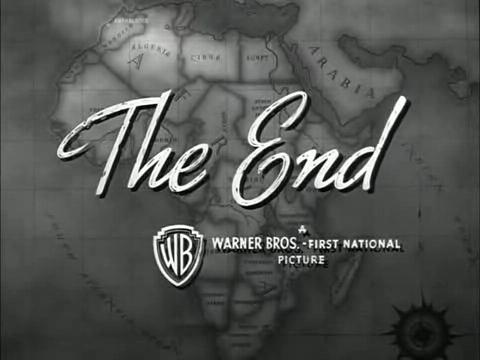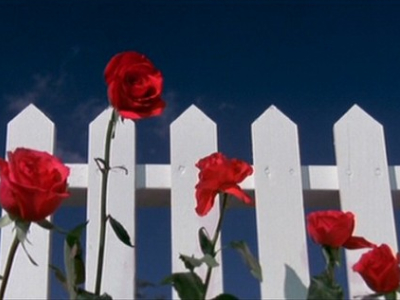A while ago, I saw a host of these posts popping up around the film blogging community and so, now I have the time on my hands, I figured I’d try my hand at it.
These quotes are things that I can relate to, find interesting or amusing, or that quite simply stuck with me.
1 – Life moves pretty fast. If you don’t stop and look around once in a while… You might miss it. Ferris Bueller’s Day Off
2 – Not everybody gets so corrupted. You gotta have a little faith in people. Manhattan
3 – Always be closing. Glengarry Glen Ross
4 – Nobody’s perfect. Some Like it Hot
5 – That’s why I can’t say enough times, whatever love you can get and give, whatever happiness you can filch or provide, every temporary measure of grace, whatever works. Whatever Works
6 – We’ll always have Paris. Casablanca
7 – Tomorrow is another day. Gone With the Wind
8 – All work and no play makes Jack a dull boy. The Shining
9 – If that plane leaves the ground and you’re not with him, you’ll regret it. Maybe not today. Maybe not tomorrow, but soon and for the rest of your life. Casablanca

10 – If you’re good at something never do it for free. The Dark Knight
11 – I don’t want to be a product of my environment. I want my environment to be a product of me. The Departed
12 – Separation can be a terrifying thing. Dead Ringers
13 – I’m very sorry the government taxes their tips; that’s fucked up. That ain’t my fault. It would seem to me that waitresses are one of the many groups the government fucks in the ass on a regular basis. Reservoir Dogs
14 – This isn’t life, it’s just stuff. And it’s become more important to you than living. Well, honey, that’s just nuts. American Beauty
15 – Remember those posters that said, “Today is the first day of the rest of your life”? Well, that’s true of every day but one – the day you die. American Beauty
16 – What if this is as good as it gets? As Good As It Gets
17 – I have a voice! The King’s Speech
18 – That’s how you’re gonna beat ’em. They keep underestimating you. Pulp Fiction
19 – And it’s time my luck changed. And it’s time something went right for me for a change. Julia
20 – We didn’t need words, we had faces. Sunset Boulevard

21 – Keep your friends close, but your enemies closer. The Godfather: Part II
22 – Coffee’s for closers. Glengarry Glen Ross
23 – Live today as if it may become your last. Nine
24 – Nobody, no, nobody, is gonna rain on my parade. Funny Girl
25 – A relationship I think; is like a shark. It’s gotta keep moving forward, or it dies. Annie Hall
26 – I coulda had class. I coulda been a contender. I coulda been somebody. On the Waterfront
27 – The only thing standing in your way, is you. Black Swan

28 – Unless you love, your life will flash by. The Tree of Life
29 – I understand, all right. The hopeless dream of being – not seeming, but being. At every waking moment, alert. The gulf between what you are with others and what you are alone. The vertigo and the constant hunger to be exposed, to be seen through, perhaps even wiped out. Every inflection and every gesture a lie, every smile a grimace. Suicide? No, too vulgar. But you can refuse to move, refuse to talk, so that you don’t have to lie. You can shut yourself in. Then you needn’t play any parts or make wrong gestures. Or so you thought. But reality is diabolical. Your hiding place isn’t watertight. Life trickles in from the outside, and you’re forced to react. No one asks if it is true or false, if you’re genuine or just a sham. Such things matter only in the theatre, and hardly there either. I understand why you don’t speak, why you don’t move, why you’ve created a part for yourself out of apathy. I understand. I admire. You should go on with this part until it is played out, until it loses interest for you. Then you can leave it, just as you’ve left your other parts one by one. Persona
30 – Constantly talking isn’t necessarily communicating. Eternal Sunshine of the Spotless Mind
31 – There are nearly thirteen million people in the world. None of those people is an extra. They’re all the leads of their own stories. They have to be given their due. Synechdoche, New York
32 – In this big game that we play, life, it’s not what you hope for, it’s not what you deserve, it’s what you take. Magnolia
33 – Happiness, where are you? I’ve searched so long for you. Happiness, what are you? I haven’t got a clue. Happiness, why do you have to stay… so far away… from me? Happiness
34 – I could take you somewhere. Shame
35 – Enjoy it while it lasts. Melancholia
36 – Schmucks are people too. Something’s Gotta Give
37 – Whatever happened to chivalry? Does it only exist in 80’s movies? I want John Cusack holding a boombox outside my window. I wanna ride off on a lawnmower with Patrick Dempsey. I want Jake from Sixteen Candles waiting outside the church for me. I want Judd Nelson thrusting his fist into the air because he knows he got me. Just once I want my life to be like an 80’s movie, preferably one with a really awesome musical number for no apparent reason. But no, no, John Hughes did not direct my life. Easy A

38 – It’s alive. Frankenstein
39 – I wish I knew how to quit you. Brokeback Mountain
40 – Even though I’m no more than a monster – don’t I, too, have the right to live? Oldboy
41 – You can’t control life. It doesn’t wind up perfectly. Only-only art you can control. Stardust Memories
42 – Faith is a torment. It is like loving someone who is out there in the darkness but never appears, no matter how loudly you call. The Seventh Seal
43 – It takes backbone to lead the life you want. Revolutionary Road
44 – Just get through the goddamn day. A Single Man
45 – Life is a cabaret, old chum. Cabaret
46 – I’m seeing something that was always hidden. I’m in the middle of a mystery and it’s all secret. Blue Velvet
47 – It’s showtime folks. All That Jazz

48 – Stay here with me. We’ll start a jazz band. Lost in Translation
49 – Remember, Red, hope is a good thing, maybe the best of things. And good things never die. The Shawshank Redemption
50 – You is kind, You is smart. You is important. The Help
51 – Morally you’re supposed to overcome your impulses, but there are times you don’t want to overcome them. Carnage
52 – The best trick the Devil pulled was convincing everyone he didn’t exist. The Usual Suspects
53 – And so I walk through the valley of the shadow of death. Actually, make that “I run through the valley of the shadow of death” – in order to get OUT of the valley of the shadow of death more quickly, you see. Love and Death
54 – Don’t be afraid to dream a little bigger, darling. Inception
55 – All men are created equal. No matter how hard you try, you can never erase those words. Milk
56 – Do I kill everything that I love? J. Edgar
57 – I feel like a little adventure. The Aviator
58 – If you existed, I’d divorce you. Who’s Afraid of Virginia Woolf?
59 – A man’s attitude… a man’s attitude goes some ways. The way his life will be. Mulholland Drive
60 – To love is to suffer. To avoid suffering, one must not love. But then, one suffers from not loving. Therefore, to love is to suffer; not to love is to suffer; to suffer is to suffer. To be happy is to love. To be happy, then, is to suffer, but suffering makes one unhappy. Therefore, to be unhappy, one must love or love to suffer or suffer from too much happiness. I hope you’re getting this down. Love and Death
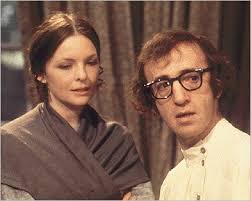
61 – The internet isn’t written in pencil, it’s written in ink. You write your snide bullshit in a dark corner because that’s what the angry do nowadays. The Social Network
62 – You can like the life you’re living, you can live the life you like. You can even marry Harry, but mess around with Ike. And it’s good, isn’t great, isn’t swell, isn’t fun, isn’t it? But nothing stays. In fifty years or so, it’s gonna change, y’know. But, oh, it’s heaven. Nowadays. Chicago
63 – We’re not drinking fucking merlot. Sideways
64 – In this family, we do not solve problems by hitting people! A History of Violence
65 – Sometimes you have to do something unforgivable, just to be able to go on living. A Dangerous Method
66 – Frankly my dear, I don’t give a damn. Gone With the Wind
67 – My conclusion is: hate is baggage. Life’s too short to be pissed off all the time. It’s just not worth it. American History X
68 – A little guilt goes a long way. The Machinist
69 – I’m bored with sitting around. I’m a dramatic character. I need forward motion. The Purple Rose of Cairo
70 – I wanted to know how these things started. Now I do. These feelings just creep up on you out of nowhere. In the Mood For Love
71 – It’s a strange world, Sandy. Blue Velvet
72 – If you wake up at a different time, in a different place, could you wake up as a different person? Fight Club
73 – I feel something important is happening around me. And it scares me. Three Colours: Red
74 – In heaven, everything is fine. You’ve got your good things, and I’ve got mine. Eraserhead
75 – Every great magic trick consists of three parts or acts. The first part is called “The Pledge”. The magician shows you something ordinary: a deck of cards, a bird or a man. He shows you this object. Perhaps he asks you to inspect it to see if it is indeed real, unaltered, normal. But of course… it probably isn’t. The second act is called “The Turn”. The magician takes the ordinary something and makes it do something extraordinary. Now you’re looking for the secret… but you won’t find it, because of course you’re not really looking. You don’t really want to know. You want to be fooled. But you wouldn’t clap yet. Because making something disappear isn’t enough; you have to bring it back. That’s why every magic trick has a third act, the hardest part, the part we call “The Prestige”.The Prestige
76 – You should’ve gone to China, you know, ’cause I hear they give away babies like free iPods. You know, they pretty much just put them in those t-shirt guns and shoot them out at sporting events. Juno
77 – Methinks our friend’s a tad bit fuckered in the head. Zodiac
78 – Your conversational skills are really deteriorating as the day goes on. Hard Candy
79 – Long live the new flesh. Videodrome

80 – The sky is pocked with stars. What eyes the wise men must have had to see a new one in so many. The Lion in Winter
81 – What am I doing? I’m silently judging you. Magnolia
82 – We’re emotional illiterates. We’ve been taught about anatomy and farming methods in Africa. We’ve learned mathematical formulas by heart. But we haven’t been taught a thing about our souls. We’re tremendously ignorant about what makes people tick. Scenes from a Marriage
83 – It’s always difficult to keep personal prejudice out of a thing like this. And wherever you run into it, prejudice always obscures the truth. I don’t really know what the truth is. I don’t suppose anybody will ever really know. 12 Angry Men
84 – Don’t believe everything you hear on the radio. Citizen Kane
85 – You’re gonna need a bigger boat. Jaws
86 – There’s always a bigger fish. Stars Wars, Episode I: The Phantom Menace
87 – Use the Force. Star Wars
88 – I’m the one who’s fighting. Not you, not you, and not you. The Fighter
89 – In bed by nine? That’s when life just begins! Gentlemen Prefer Blondes
90 – There’s a hole in the world like a great black pit and it’s filled with people who are filled with shit and it’s morals aren’t worth what a pig would spit, and it goes by the name of London. Sweeney Todd: The Demon Barber of Fleet Street
91 – You’ll find the shame is like the pain, you only feel it once. Dangerous Liaisons
92 – One late autumn night, the disciple awoke crying. So the master asked the disciple, “Did you have a nightmare?” “No.” “Did you have a sad dream?” “No,” said the disciple. “I had a sweet dream.” “Then why are you crying so sadly?” The disciple wiped his tears away and quietly answered, “Because the dream I had can’t come true.” A Bittersweet Life
93 – You need to put a lot of effort into not caring. Scenes from a Marriage
94 – Some men change. Well, they don’t change – they reveal. They reveal themselves over time, you know? Inland Empire
95 – I closed the book, and felt this strange mixture of wistfulness and hope, and I wondered if a memory is something you have or something you’ve lost. For the first time in a long time, I felt at peace. Another Woman
96 – Some of our stars are the same. The Silence of the Lambs
97 – Everything is exactly the way it’s meant to be. A Single Man
98 – You met me at a very strange time in my life. Fight Club
99 – There’s an old joke – um… two elderly women are at a Catskill mountain resort, and one of ’em says, “Boy, the food at this place is really terrible.” The other one says, “Yeah, I know; and such small portions.” Well, that’s essentially how I feel about life – full of loneliness, and misery, and suffering, and unhappiness, and it’s all over much too quickly. The… the other important joke, for me, is one that’s usually attributed to Groucho Marx; but, I think it appears originally in Freud’s “Wit and Its Relation to the Unconscious,” and it goes like this – I’m paraphrasing – um, “I would never want to belong to any club that would have someone like me for a member.” That’s the key joke of my adult life, in terms of my relationships with women. Annie Hall

100 – There are no more barriers to cross. All I have in common with the uncontrollable and the insane, the vicious and the evil, all the mayhem I have caused and my utter indifference toward it I have now surpassed. My pain is constant and sharp, and I do not hope for a better world for anyone. In fact, I want my pain to be inflicted on others. I want no one to escape. But even after admitting this, there is no catharsis; my punishment continues to elude me, and I gain no deeper knowledge of myself. No new knowledge can be extracted from my telling. This confession has meant nothing. American Psycho


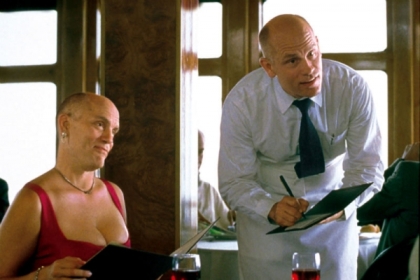



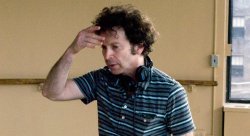













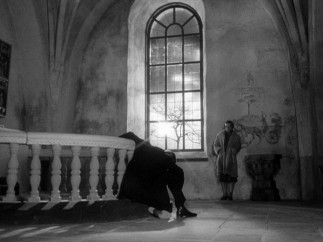

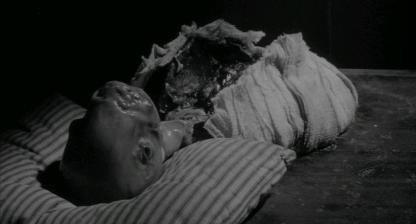
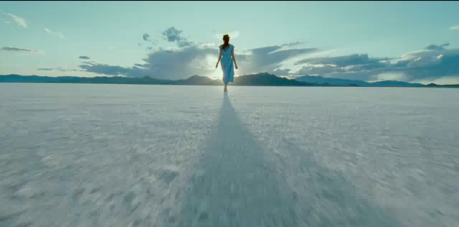

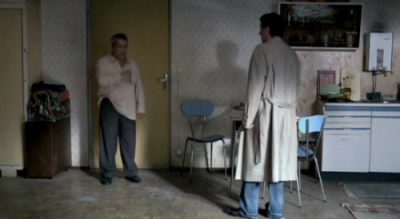





 Aronofsky’s unsettling psychological thriller, a tale of drive, obsession and psychosis, with the classic ballet Swan Lake masterfully used in the background, was one of my favourite films of 2010. From the incredible performance from Portman to the expertly crafted suspense and the bizarre sex scene (that didn’t seem at all erotic to me), where Nina, perhaps in a dream, is sleeping with Lily, and in a moment that shows the decline of her sanity, and perhaps the rampant nature of her ego, pictures herself where Lily is. Used to wonderful effect as a character device and a shocking moment. If you haven’t seen this film already, do seek it out, so much about it, from Portman’s performance, to the stellar opening scene, this is something that simply should be seen.
Aronofsky’s unsettling psychological thriller, a tale of drive, obsession and psychosis, with the classic ballet Swan Lake masterfully used in the background, was one of my favourite films of 2010. From the incredible performance from Portman to the expertly crafted suspense and the bizarre sex scene (that didn’t seem at all erotic to me), where Nina, perhaps in a dream, is sleeping with Lily, and in a moment that shows the decline of her sanity, and perhaps the rampant nature of her ego, pictures herself where Lily is. Used to wonderful effect as a character device and a shocking moment. If you haven’t seen this film already, do seek it out, so much about it, from Portman’s performance, to the stellar opening scene, this is something that simply should be seen.






